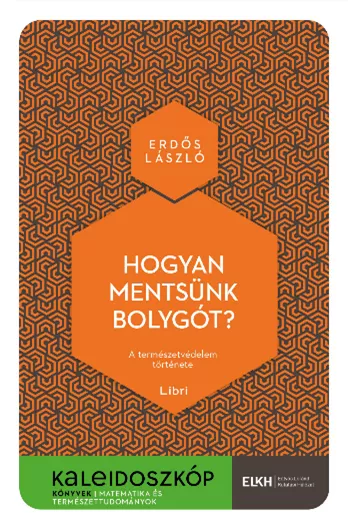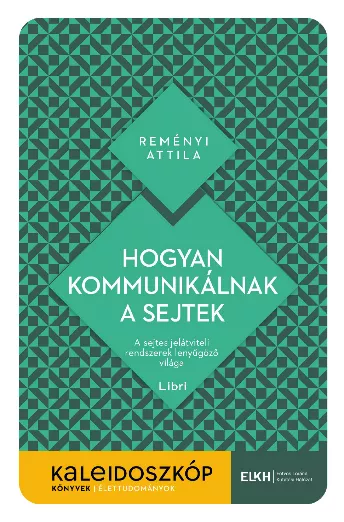In 2022, the Eötvös Loránd Research Network (ELKH), Libri Publishing and the Foundation for Hungarian Culture jointly launched a new Hungarian educational series of scientific paperbacks entitled Kaleidoscope Books. Two new volumes are now available in Libri bookshops and online at libri.hu. The works, written by ELKH researchers, present the latest and most exciting results of domestic research in an easily understandable form for the science-interested audience.
The new volumes of the Kaleidoscope Books pocketbook series:
László Erdős: How to Save a Planet? – The History of Nature Conservation

The decline of biodiversity, climate change, and environmental pollution are the most urgent problems of our time, which have a direct impact on humanity as we, too, are part of the living world. Our long-term well-being depends on whether society is in harmony with nature. Achieving this harmony requires a shift in mindset, so that people do not view nature as a resource to be exploited, but as a precious and preservable treasure.
This volume presents, in an engaging style, humanity's relationship with nature from the development of our species to the present day. It outlines the greatest challenges and most important actions facing us, thus serving as a possible inspiration to further green our lifestyles.
László Erdős has been passionately interested in nature conservation since his early childhood. He graduated as a biologist and earned his doctorate in ecology. In addition to around a hundred scientific publications, he has also written numerous popular science articles and books. He currently works as a research fellow at the ELKH Centre for Ecological Research and the University of Debrecen, and is a visiting lecturer at Eötvös Loránd University in Budapest.
For more information about the book please visit: https://www.libri.hu/konyv/erdos_laszlo.hogyan-mentsunk-bolygot.html
Attila Reményi: How Cells Communicate ‒ The Fascinating World of Cellular Signaling Systems

The foundation of biological organization is cellular life. How do cells sense their environment and each other, and what determines their specific biological responses (such as growth or cell death)? The sensing of the external world and communication between cells can be imagined as a signaling process in which substances with diverse chemical properties (e.g., hormones, receptor proteins, enzymes, and signaling molecules) are connected to each other.
If we uncover the logic of interactions between intracellular agents that share biochemical information with each other, we can understand why cancer is such a common disease, why high blood pressure is harmful, or we can find solutions to viruses. Therefore, it is not surprising that the goal of medical-biological research is to develop drug compounds that bind to the proteins that operate cellular signaling. These artificially created molecules, successfully produced, are now widely used in medicine.
Attila Reményi is a doctor of the Hungarian Academy of Sciences, scientific advisor of the Institute of Organic Chemistry of the ELKH Research Centre for Natural Sciences, and leader of the Biomolecular Interactions Research Group. His research focuses on protein biochemistry, structural biology, and the examination of cellular signaling mechanisms.
For more information about the book please visit: https://www.libri.hu/konyv/remenyi_attila.hogyan-kommunikalnak-a-sejtek.html